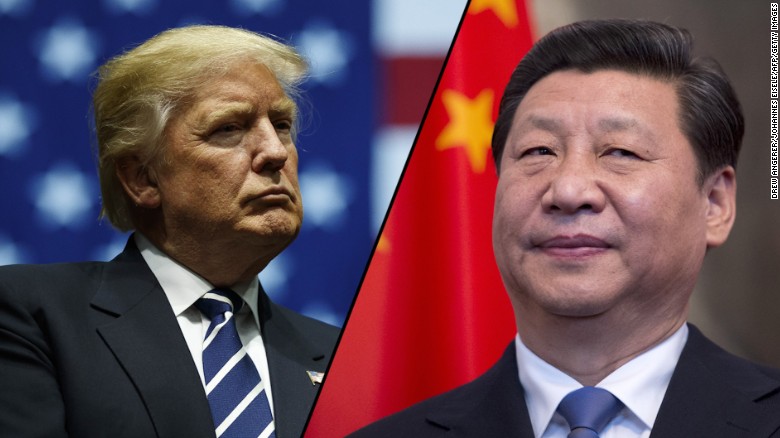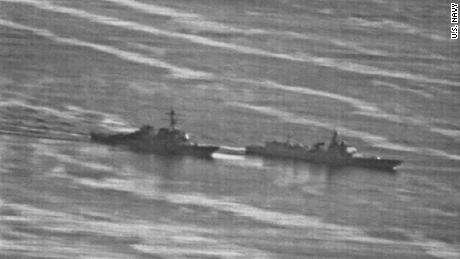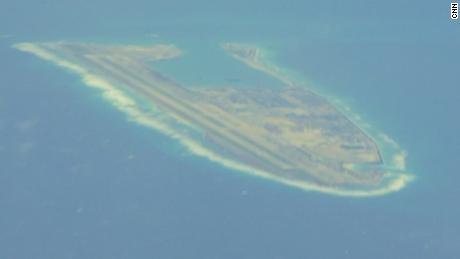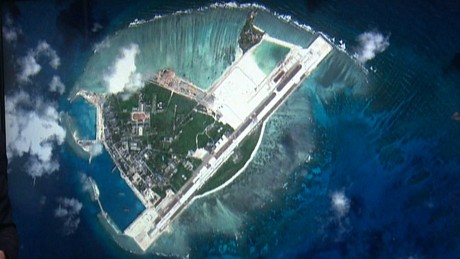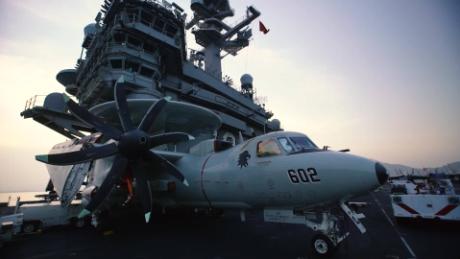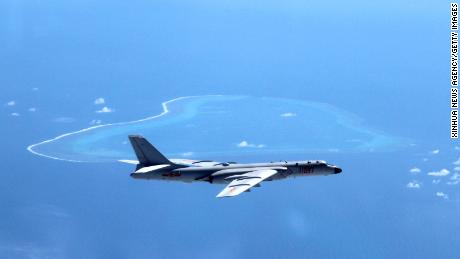Washington (CNN)The US has withdrawn an invitation to China to participate in what has been described as the world's largest international maritime warfare exercise, the Pentagon said on Wednesday.
A Pentagon spokesman said in a statement that "China's behavior is inconsistent with the principles and purposes of the RIMPAC exercise," and it has "disinvited the PLA Navy from the 2018 Rim of the Pacific (RIMPAC) Exercise."
Held every two years and based in Hawaii, the RIMPAC exercise involves more than 20 countries from across the world, including Australia, India, Japan and the United Kingdom.
The decision to withdraw China's invitation was made by Defense Secretary James Mattis in coordination with the White House, according to a US official, after Beijing's recent deployment of missile systems and the first landing of a Chinese bomber on an island in the South China Sea.
The same defense official told CNN that the US has its own imagery showing China's deployment of anti-ship missiles, surface-to-air missiles and jammers on disputed islands.
Carl Schuster, Hawaii Pacific University professor and former director of operations at the US Pacific Command's Joint Intelligence Center, told CNN the decision to withdraw the invitation showed "the days of appeasement are over."
"We are now willing to take strong action diplomatically ... We're telling the Chinese that there will be diplomatic and potentially economic consequences for further aggression in the South China Sea," he said.
Bombers landed on island
China said last week that it landed long-range bombers for the first time on an island in the South China Sea, the latest in a series of maneuvers putting Beijing at odds with its neighbors and Washington over China's growing military presence around disputed islands.
The bombers were deployed to Woody Island, an artificial land mass built by the Chinese government in the Paracel Islands, which are claimed by Vietnam and Taiwan as well as Beijing.
The People's Liberation Army Air Force (PLAAF) announced it successfully organized the takeoff and landing of several bombers, including the nuclear-capable H-6K, on an unspecified island. The PLA claimed the mission was a part of China's aim to achieve a broader regional reach, quicker mobilization, and greater strike capabilities.
"The islands in the South China Sea are China's territory," Chinese Foreign Ministry spokesperson Lu Kang said in a statement Monday. "The relevant military activities are normal trainings and other parties shouldn't over-interpret them."
Standing alongside Secretary of State Mike Pompeo at a news conference in Washington on Wednesday, Chinese Foreign Minister Wang Yi called the US decision "unhelpful."
"We find that a very unconstructive move ... It's unhelpful to mutual understanding between China and the US. We hope the US will change such a negative mindset," he told reporters.
Pompeo said at the same briefing that the US has been consistent in raising its concerns about China's behavior in the South China Sea.
US Defense Secretary Mattis is scheduled to travel to China and Japan at the end of June, defense officials have acknowledged.
China sent a message
Participating in the last RIMPAC in 2016 were 45 ships, 200 aircraft and more than 25,000 people from 26 nations, the defense official told CNN.
The Chinese military sent five vessels to take part in the 2016 exercises, including the missile destroyer Xi'an, the missile frigate Hengshui and the supply ship Gaoyouhu.
It was only the second time China had taken part in the exercises.
RIMPAC is a unequaled opportunity for countries across the Asia Pacific to work together and train on issues of common maritime interest, Schuster said.
"It's also an opportunity for bilateral interaction, you typically get to meet counterparts from countries you don't work with regularly. It's quite a gathering, and it's professionally rewarding," he said.
By excluding China from the event in 2018, the United States was sending a clear message that Beijing was stepping outside international norms, Schuster said.
He added the Obama administration had allowed China to participate in the 2016 RIMPAC exercises after a promise from Chinese President Xi Jinping that the artificial islands in the South China Sea would not be militarized.
"If we had disinvited China after he'd given his word, then it would have been a major diplomatic stab in the eye, saying we don't believe him. We didn't have evidence at the time he would continue the militarization," he said.
